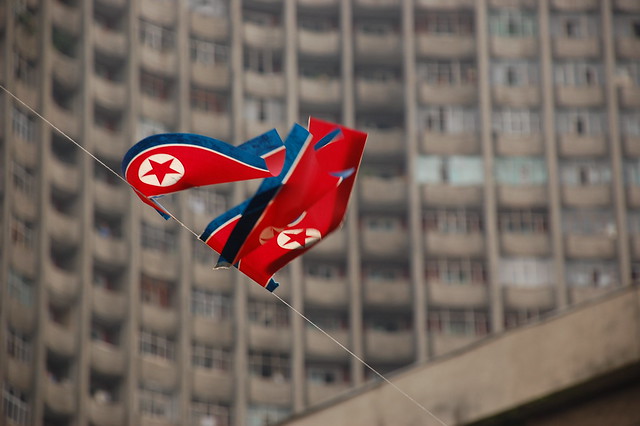The Pyongyang University of Science and Technology (PUST) is the first university in North Korea founded and run by foreigners, mainly from the United States, China, and South Korea, offering a Western Education. Inaugurated in 2010, PUST has selected young men from North Korea’s most prominent and influential families “to equip them with the skills to help modernise the impoverished country and engage with the international community.” In a country that has a long history of isolation and animosity toward the West, and the U.S. in particular, the university is a sign of hope for a North Korea that is more engaged in the global community. On the other hand, there are concerns that the university promotes unconditional support for a notoriously oppressive regime guilty of numerous human rights violations.
Similar to any other educational institution in North Korea, patriotism is a hallmark of PUST. Every morning, the students chant, “Our supreme commander Kim Jong-un, we will defend him with our lives.” Every classroom is also decorated with the photos of North Korea’s dictators, whom students are taught to blindly revere.
Dr. James Chin-Kyung Kim, the founder and president, is a Korean-American who raised most of the 20 million euros needed to establish the university – mostly from Christian charities. He was commissioned to do so by the current regime in North Korea. Many of the faculty are from the West, and are sponsored by Christian charities. In a country where internet and media are heavily monitored and students have never heard even of Michael Jackson, interacting with foreigners is a novelty. Some students expressed apprehension in the beginning, “but…now believe American people are different from the US,” and are eager to learn about other cultures and languages.
As a unique and potentially revolutionary institution in North Korea, PUST is a symbol of hope of integration and progress. As Greg Scarlatoiu from Committee for Human Rights in North Korea stated, however, “the key question is whether the university is trying those young Koreans most likely to change the country in a positive way, or those most likely to perpetuate the current regime.”
Creative Commons Love: Stephan
Written by Nashrah Ahmed
